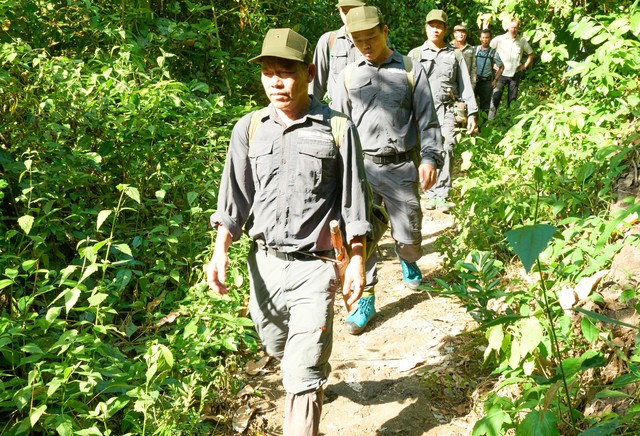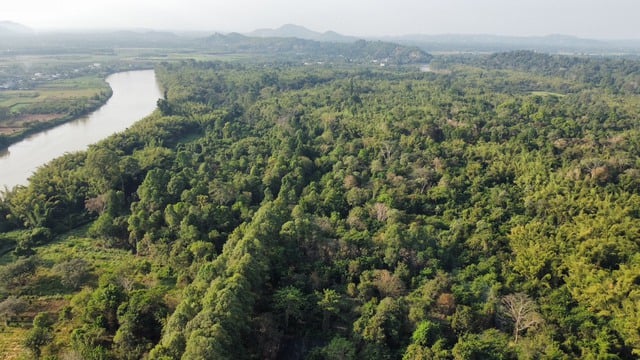May 29, 2025 | 20:39 GMT +7
May 29, 2025 | 20:39 GMT +7
Hotline: 0913.378.918
May 29, 2025 | 20:39 GMT +7
Hotline: 0913.378.918

Forest protection and development create a solid foundation for Vietnam's carbon credit market. Photo: VGP.
The Department of Forestry (Ministry of Agriculture and Rural Development) said the world carbon credit market currently operates in Voluntary international and domestic carbon markets (mandatory).
Accordingly, the voluntary international carbon credit market aims to trade carbon credits to serve corporate social responsibility voluntarily, build public image, and create additional credit supply for the domestic carbon credit market.
Voluntary carbon credit markets are often based on bilateral or multilateral contracts and cooperation agreements between organizations, companies, or countries. Therefore, the market regulates the selling price of carbon credits (supply and demand).
Currently, there are nearly 30 countries and territories in the world that have issued carbon credit taxes, with tax rates ranging from US$ 1 to 137/ton of carbon.
In Vietnam, on January 7, 2022, the Government issued Decree 06/2022/ND-CP regulating greenhouse gas emissions mitigation and ozone layer protection. This Decree has specific regulations on the development roadmap and timing of implementing the domestic carbon credit market.

In Vietnam, the transfer of emission reduction results is currently carried out through bilateral negotiation agreements between relevant parties. Photo: VGP.
Regarding the agreement to transfer forest carbon credits in Vietnam, according to the Department of Forestry, Ministry of Agriculture and Rural Development, Vietnam does not have a mandatory market for carbon credits. Therefore, emission reduction results are transferred through bilateral negotiated agreements between relevant parties according to the voluntary market.
The Ministry of Agriculture and Rural Development has completed and submitted the registration application for credit granting according to TREES standards (also known as The REDD+ Environmental Excellence Standard). At the same time, we are urgently organizing technical negotiation sessions with the Emergent Organization to complete the negotiation project and report to the Prime Minister for consideration and decision.
The Ministry of Agriculture and Rural Development said that the orientation from 2028 will be to organize an official carbon credit exchange and regulate activities connecting and exchanging domestic carbon credits with regional and world carbon markets.
Translated by Tuan Huy

(VAN) Ms. Nguyen Thi Dung, Deputy Director of Ngoc Hoang Cooperative, shared about the journey of bringing dragon fruit to Europe, achieving annual revenues in the billions of VND.

(VAN) Bamboo products from Thang Tho Bamboo Cooperative have reached many countries around the world, while also creating jobs for local workers.

(VAN) The Management Board of Con Dao National Park reported that a green sea turtle, tagged in the Philippines, has traveled thousands of kilometers to lay 84 eggs on Bay Canh Islet.

(VAN) Green technology is paving a new path for sustainable aquaculture in the Mekong Delta in particular and across the country in general, helping reduce emissions and adapt to climate change.

(VAN) On May 27, La French Tech Vietnam (the French startup and innovation community in Vietnam) held the French Tech Summit Vietnam 2025.
/2025/05/27/4731-2-223159_980.jpg)
(VAN) No votive paper, no styrofoam, no plastic bags, no plastic bottles, and no single-use plastic trays are the key rules tourists should keep in mind when visiting Con Dao.

(VAN) In the fight against plastic pollution, Vietnam has been demonstrating a proactive, pioneering, and active role in addressing the greatest environmental challenge today.